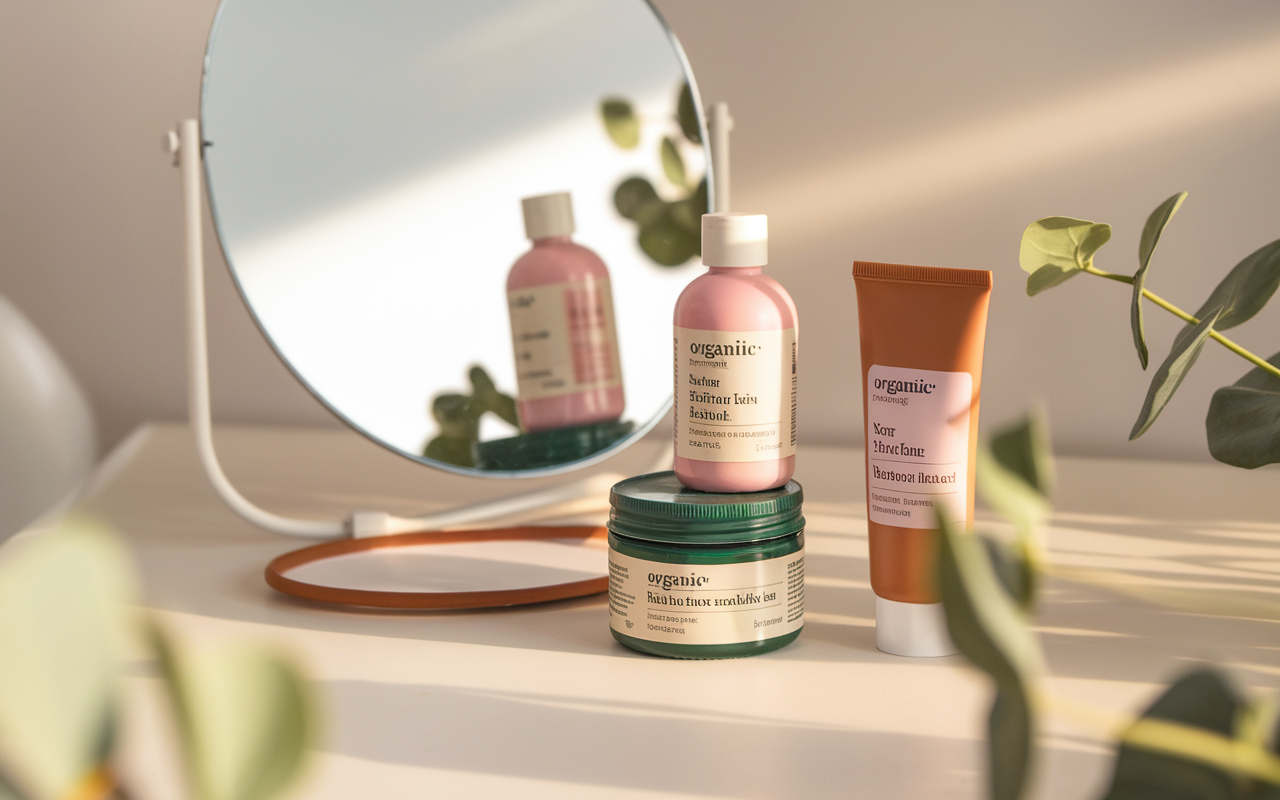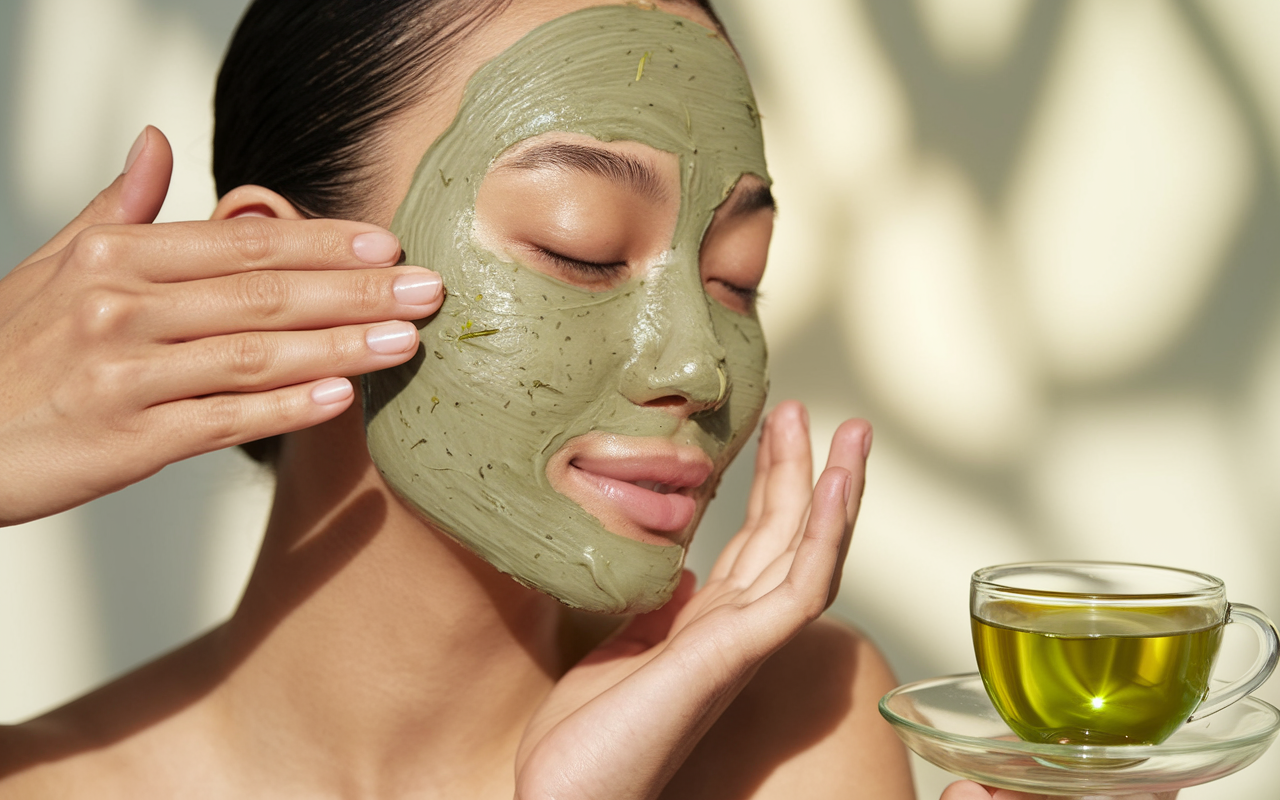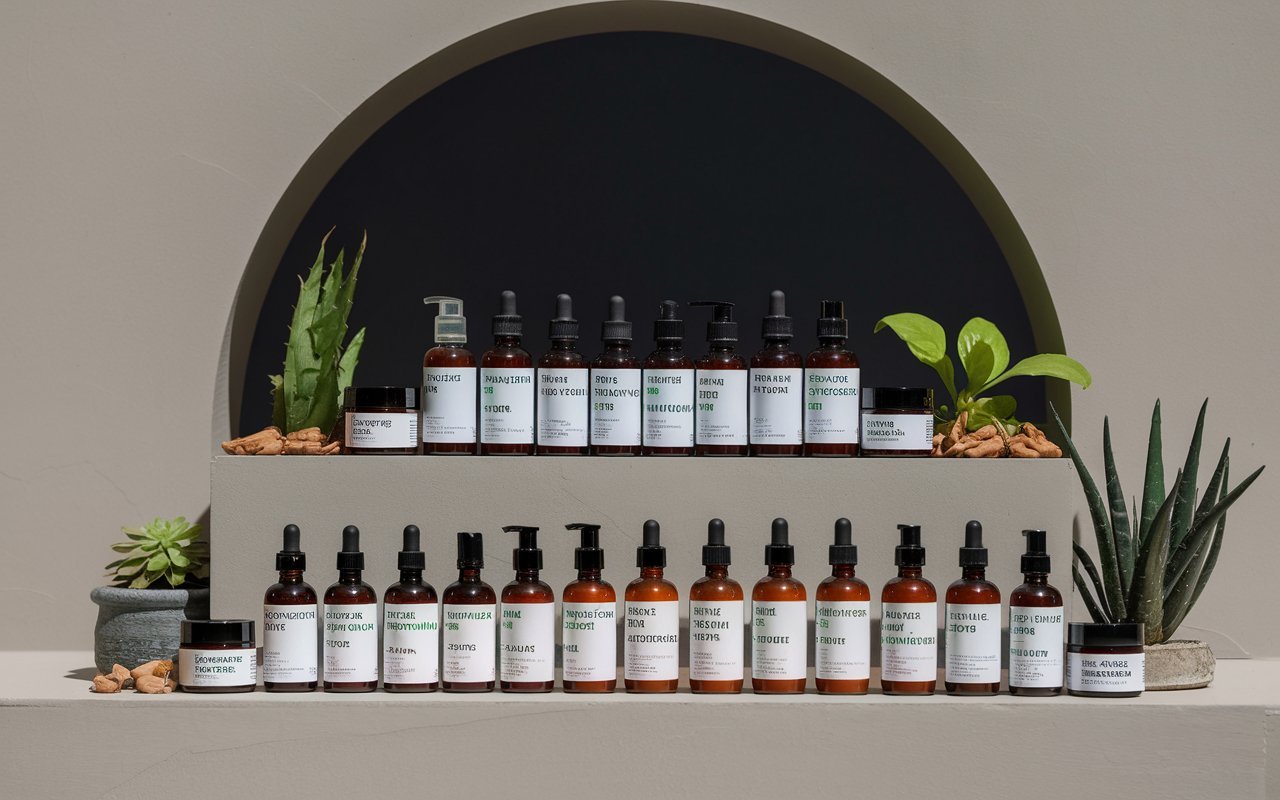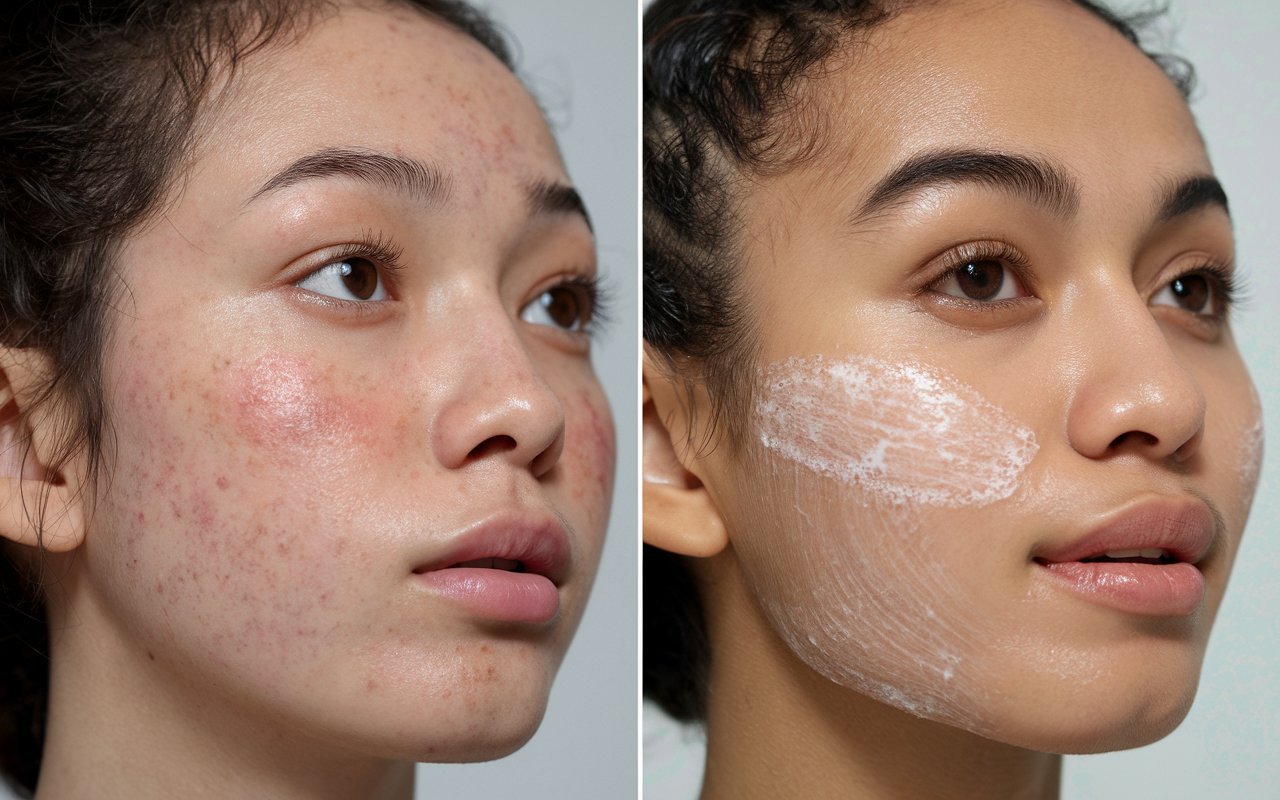
Introduction
Acne doesn’t just leave marks on our skin; it carves scars on our confidence, making us hesitate to look in the mirror or step out without layers of concealer. If you’ve tried everything under the sun to manage acne—from harsh chemicals to endless prescriptions—you might feel defeated. But there’s a gentler, nature-inspired solution: organic skin care.
Amid the overwhelming array of conventional products promising instant fixes, organic skin care stands apart, offering a kinder, more sustainable approach. Could this be the remedy your skin has been longing for? Let’s dive deep and uncover how organic skin care can transform not just your skin but also your self-esteem.
Understanding Acne
What Triggers Acne?
Acne is a multifaceted skin condition often caused by the perfect storm of excess oil (sebum), clogged pores, bacteria, and inflammation. But what makes acne particularly challenging is its deep connection to internal factors like:
- Hormonal changes: Puberty, menstruation, or stress can send oil glands into overdrive.
- Genetics: If acne runs in your family, your skin might naturally be more prone to breakouts.
- Stress: Elevated stress hormones can worsen inflammation and oil production.
It feels overwhelming when acne persists despite your best efforts, but understanding its root causes can help you tackle it more effectively.
The Different Types of Acne
Acne isn’t just a skin condition—it’s a personal battle that manifests in different forms, each one leaving its own mark on your skin and self-esteem. Understanding the various types of acne can help you approach treatment with more insight and compassion for yourself. Here are some of the common types you may experience:
- Blackheads and Whiteheads: Often the first signs of acne, blackheads (open pores clogged with oil and dead skin) and whiteheads (closed pores) are the mildest forms. While they may seem small, they’re an indication that your skin is struggling with excess oil production or blocked pores. These types can be persistent, but with the right care, they’re entirely manageable.
- Papules and Pustules: These are more inflamed, red bumps that can be tender to the touch. While they aren’t as deep as cystic acne, papules and pustules often bring a sense of discomfort and frustration. The inflammation can be overwhelming, and the need to soothe and reduce redness is paramount.
- Cystic Acne: The deepest, most painful form of acne, cystic acne forms beneath the skin’s surface as large, painful, pus-filled nodules. It often leads to scarring, leaving emotional scars as much as physical ones. The pain isn’t just physical—cystic acne often feels like an unrelenting burden, and it’s an experience that can shake your confidence to its core.
Organic skin care offers solutions for every form of acne, no matter how mild or severe. With natural ingredients that are gentle yet effective, organic products can calm irritation, reduce inflammation, and help heal your skin over time. Whether you’re battling persistent blackheads or deep cysts, organic skin care works to restore balance, offering the healing touch your skin needs to thrive.
Environmental and Lifestyle Factors
Our external environment and daily habits have a profound impact on our skin’s health. While we can’t always control the pollution in the air or the stress in our lives, we can take action to protect and nurture our skin, creating a more supportive environment for healing.
Pollution: The toxins in the air from pollution can clog pores and cause skin inflammation, contributing to acne flare-ups. These external pollutants not only damage the skin’s surface but can also weaken the skin barrier, making it more vulnerable to acne-causing bacteria.
Poor Diet: What we eat affects our skin in ways we often overlook. Diets high in refined sugars, dairy, or greasy foods can trigger breakouts. Organic skin care can help detoxify your skin, but supporting it from within by eating a balanced diet rich in fruits, vegetables, and omega-3 fatty acids is equally important for long-term skin health.
Lack of Sleep: Stress from lack of sleep doesn’t just make us feel tired—it can also disrupt hormonal balance, leading to an increase in acne-causing oil production. Organic skin care works to calm and soothe stressed skin, but rest and relaxation are just as crucial in supporting your skin’s ability to heal and rejuvenate.
Organic skin care doesn’t just work on the surface—it aligns with your overall lifestyle. By focusing on pure, natural ingredients that nourish and protect, organic products support a more holistic approach to clear skin. Whether it’s detoxifying pollution from the surface, soothing inflammation, or providing your skin with the nutrients it needs to balance out stress, organic skin care can be the vital piece in the puzzle to achieving clearer, healthier skin. When you choose organic, you’re committing to a routine that complements your life, inside and out, allowing your skin to truly heal.
Each time you nourish your skin with organic products, you’re taking one step closer to clarity—physically, emotionally, and mentally. The balance between the care you give your skin and the lifestyle you lead is the key to lasting results.
The Basics of Organic Skin Care
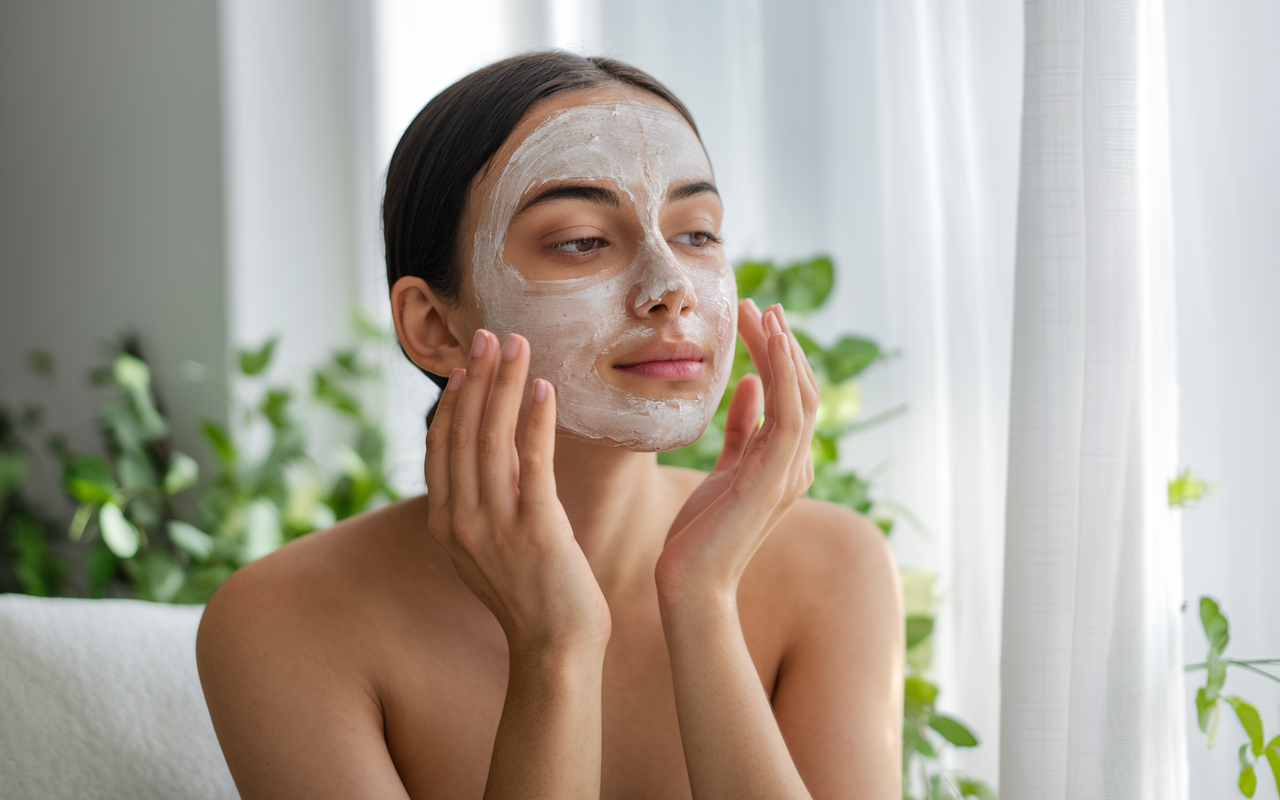
What Makes Skin Care “Organic”?
Organic skin care products are carefully crafted using natural ingredients that are grown and harvested without the use of synthetic fertilizers, pesticides, or harmful additives. These products honor nature’s purity, ensuring every ingredient works in harmony with your skin rather than against it. By embracing organic skin care, you’re choosing formulas that prioritize health and sustainability over chemical shortcuts, offering your skin the gentle touch it truly deserves.
Beyond just being “natural,” organic skin care sets a higher standard. It avoids artificial fragrances, parabens, and sulfates, which often irritate sensitive or acne-prone skin. Instead, these products leverage the healing power of plants, flowers, and botanicals in their purest form, creating a skincare experience that feels as nourishing as it is effective.
Common Organic Certifications to Trust
Not all “organic” labels are created equal, which is why certifications matter. They ensure transparency, quality, and adherence to strict standards. When selecting organic skin care products, keep an eye out for trusted certifications like:
- USDA Organic: This certification guarantees that the product contains at least 95% organic ingredients.
- ECOCERT: One of the first certifications to develop standards for natural and organic cosmetics.
- COSMOS Organic: An internationally recognized label that ensures sustainability and ethical sourcing.
These certifications are more than just badges; they’re a promise that the product you’re holding is free from harmful chemicals and meets rigorous environmental and ethical standards. Choosing certified organic products is like casting a vote for integrity, sustainability, and care—for both your skin and the planet.
Why Organic Skin Care Stands Out
Organic skin care isn’t just another beauty trend; it’s a philosophy rooted in respect—for your skin and for nature. Unlike traditional skincare products, which often rely on synthetic ingredients to deliver quick but temporary results, organic products work with your skin’s natural processes to achieve lasting health and vitality.
By avoiding harsh chemicals, organic skin care ensures that your skin’s natural oils aren’t stripped away, preserving its delicate balance. Instead, these products deliver nutrients, antioxidants, and hydration directly to your skin, empowering it to repair, renew, and thrive. Imagine replacing irritation, dryness, and breakouts with comfort, glow, and confidence.
Additionally, organic skin care is about more than just physical results. It’s about the emotional reassurance that comes with knowing you’re nourishing your skin with the cleanest, safest ingredients. It’s about making choices that reflect care—for yourself, your loved ones, and the environment.
In a world increasingly flooded with synthetic, fast-acting solutions, organic skin care stands out as a gentle, enduring promise: to nurture your skin naturally, to restore balance, and to help you fall in love with your skin again. Isn’t that what true self-care is all about?
How Organic Skin Care Addresses Acne
Gentle Yet Effective Solutions
Acne-prone skin is like a delicate ecosystem—it requires balance, care, and a gentle touch. Unfortunately, conventional acne treatments often bulldoze through this balance, leaving behind redness, dryness, or peeling as collateral damage. Organic skin care approaches acne differently, understanding that healing begins with kindness to your skin.
Ingredients like tea tree oil, chamomile, and calendula are nature’s remedies, offering antibacterial and anti-inflammatory properties without the harshness of synthetic chemicals. Tea tree oil works tirelessly to combat acne-causing bacteria, while chamomile and calendula soothe inflamed skin, reducing discomfort and redness. Together, they form a powerful yet soothing team that supports your skin’s natural healing process.
Unlike products that leave your skin feeling tight and stripped, organic solutions nurture it, providing the hydration and nourishment it needs to repair itself. Think of it as a tender embrace for your skin, offering relief and balance without the sting of harsh chemicals.
Avoiding Synthetic Chemicals
Conventional acne treatments often rely on potent ingredients like benzoyl peroxide and salicylic acid, which, while effective, can lead to side effects such as dryness, peeling, or even sensitivity to sunlight. For many, these treatments feel like trading one skin problem for another.
Organic skin care offers a kinder, smarter alternative. Instead of forcing your skin to comply with aggressive treatments, organic products work with your skin, respecting its natural processes. Ingredients like willow bark extract, a natural source of salicylic acid, provide a gentler approach to unclogging pores and exfoliating dead skin cells. Similarly, natural oils like jojoba oil mimic the skin’s own sebum, helping to regulate oil production without clogging pores.
By choosing organic, you’re saying goodbye to synthetic irritants and hello to ingredients that harmonize with your skin’s needs. It’s a mindful choice that prioritizes long-term health over quick, often damaging fixes.
Reducing Inflammation
One major factor that causes acne is inflammation. Those swollen, red pimples are often a result of your skin’s inflammatory response to bacteria or clogged pores. Conventional treatments may dry out the pimples but often exacerbate the underlying inflammation, leaving your skin red and irritated.
Organic skin care takes a gentler path to tackle inflammation. Ingredients like green tea extract are packed with antioxidants that neutralize free radicals, reducing redness and calming irritated skin. Witch hazel, a natural astringent, helps tighten pores and soothe inflammation without the sting of alcohol-based toners.
Another star player is turmeric, a natural anti-inflammatory powerhouse that has been used in Ayurvedic medicine for centuries. Its ability to reduce redness and fight bacteria makes it a valuable addition to any organic acne-fighting routine.
With organic skin care, you’re not just treating the symptoms of acne—you’re addressing the root causes, allowing your skin to heal from within. Imagine the relief of waking up to calmer, less inflamed skin that feels as good as it looks. It’s not just skincare; it’s self-care that nurtures your confidence as much as your complexion.
Balancing Oil Production
Many people with acne mistakenly believe that all oils are bad for their skin, leading them to overuse harsh, oil-stripping cleansers. The truth is, this approach often backfires, causing your skin to produce even more oil to compensate. Organic skin care understands the importance of balance.
Natural ingredients like grapeseed oil and argan oil help regulate sebum production, providing just the right amount of hydration without clogging pores. These oils are lightweight, non-comedogenic, and rich in fatty acids that support skin health. Instead of fighting against your skin’s natural tendencies, organic products work with them, teaching your skin to maintain its equilibrium.
Nurturing the Skin’s Barrier
Like a shield, the skin barrier keeps dangerous irritants out while maintaining essential moisture. Acne-prone skin often has a compromised barrier, making it more susceptible to irritation and breakouts. Organic ingredients like aloe vera, rosehip oil, and oat extract focus on repairing and strengthening this barrier, giving your skin the resilience it needs to stay healthy and clear.
Organic skin care isn’t just about treating acne—it’s about transforming your relationship with your skin. It’s a promise of gentle, enduring care that nourishes, heals, and protects, allowing your natural beauty to shine through. With each application, you’re not just battling acne; you’re rebuilding trust with your skin, one soothing ingredient at a time.
Key Organic Ingredients for Acne
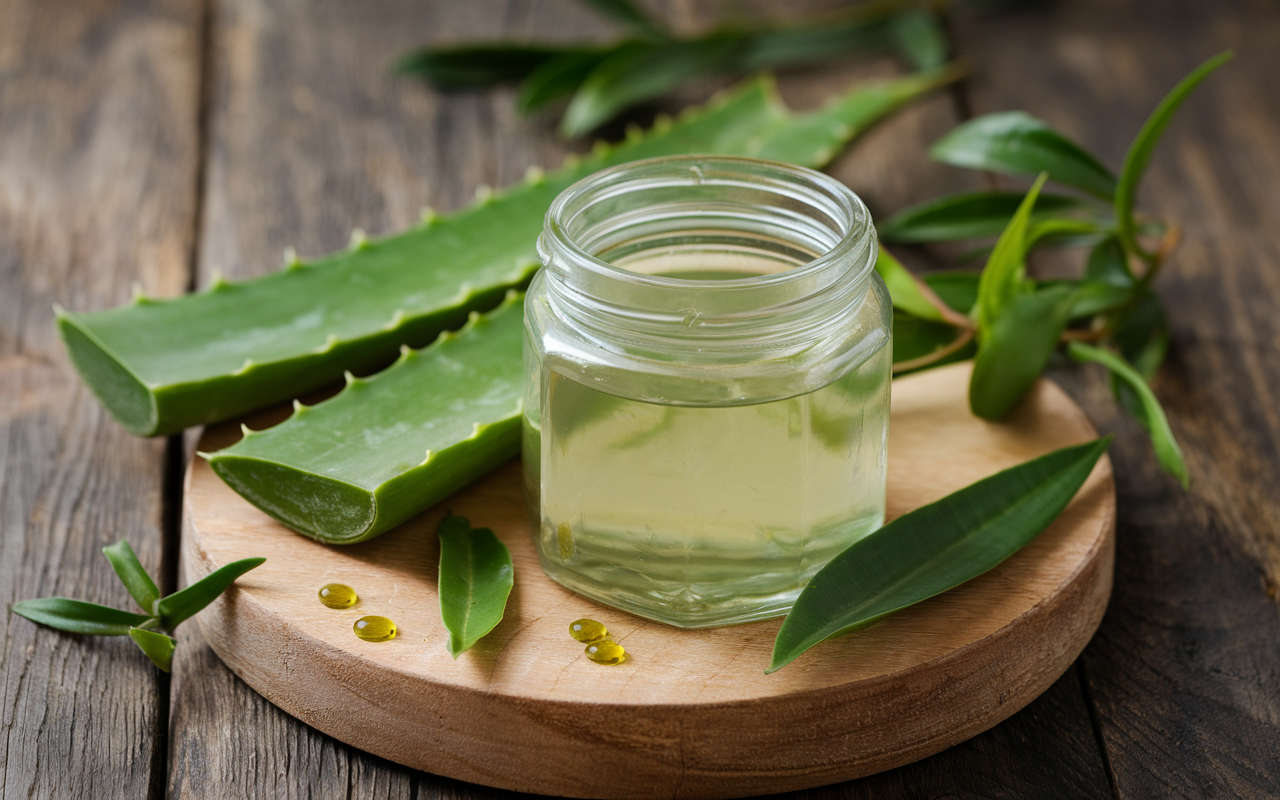
Tea Tree Oil: A Natural Antibacterial
One of the most effective organic skin care products is tea tree oil. Its antibacterial properties target the root cause of acne—bacteria—without causing dryness or irritation like conventional treatments.
Aloe Vera: Cooling and Healing
Known for its soothing properties, aloe vera helps reduce redness, heal damaged skin, and provide a calming effect on inflamed acne.
Honey: Nature’s Moisturizer and Antibacterial
Raw honey acts as both a humectant, drawing moisture into the skin, and a natural antibacterial agent, helping to keep acne-causing bacteria at bay.
Witch Hazel: Balancing Oil and Tightening Pores
Witch hazel is a gentle astringent that tightens pores, controls excess oil production, and soothes irritation, making it perfect for oily, acne-prone skin.
Green Tea Extract: Fighting Inflammation
Packed with antioxidants, green tea extract not only reduces inflammation but also helps regulate oil production, tackling two major contributors to acne.
Building a Holistic Organic Skin Care Routine
Clear skin starts with a good skincare routine. Here’s how to create a holistic routine using organic products:
1. Cleansing
Start with a gentle organic cleanser to remove impurities without disrupting your skin’s natural barrier. Ingredients like chamomile or aloe vera work well for sensitive, acne-prone skin.
2. Toning
Use organic toners such as rose water or witch hazel to balance your skin’s pH and prepare it for hydration.
3. Moisturizing
Opt for lightweight, non-comedogenic organic moisturizers. Look for ingredients like jojoba oil, which mimics your skin’s natural sebum, ensuring hydration without clogging pores.
4. Targeted Treatments
Incorporate organic serums with tea tree oil or face masks made from honey for spot treatment. These provide concentrated benefits to problem areas.
5. Sun Protection
Never skip sunscreen! Organic SPF protects your skin from UV damage without the harmful chemicals often found in conventional sunscreens.
The Emotional Side of Organic Skin Care
Choosing organic skin care isn’t just about treating acne—it’s about embracing a healthier, more compassionate approach to self-care. The journey to clear skin can feel like an emotional rollercoaster, but organic products offer reassurance with their gentleness and effectiveness.
Imagine waking up to a face that feels refreshed, not irritated. Picture the confidence you’ll gain as your skin starts to heal naturally, free from the harsh side effects of synthetic treatments. Organic skin care empowers you to feel good in your skin—literally and figuratively.
Conclusion
Switching to organic skin care is more than a trend—it’s a lifestyle choice that prioritizes your well-being and the planet. While it may take time to see results, the rewards of patience and consistency are worth it. Organic skin care offers a gentle, sustainable, and effective solution for acne-prone skin.
Your journey to clear skin doesn’t have to be a battle. With organic skin care, you’re choosing a path that’s kinder to your skin, your confidence, and the environment. Trust in nature’s wisdom and let it guide you toward healthier, acne-free skin.
By embracing organic skin care, you’re not just treating acne—you’re healing your skin and rediscovering your confidence, one natural step at a time.
FAQs
Q: How long does it take organic skin care to work on acne?
Typically, it takes 4-6 weeks of consistent use to see noticeable improvements.
Q: Can organic skin care help with severe cystic acne?
Yes, it can support treatment by reducing inflammation and soothing the skin, but severe cases may require professional intervention.
Q: What ingredients should I avoid in organic products for acne-prone skin?
Avoid heavy oils like coconut oil and products with comedogenic ingredients that can clog pores.
Q: Are DIY organic skin care remedies effective for acne?
Some DIY remedies, like honey masks or aloe vera, can be effective, but always research and patch-test to ensure safety.
Q: Is organic skin care suitable for sensitive skin?
Absolutely! Most organic products are gentle, but it’s always a good idea to patch-test new products to avoid irritation.
Also Visit:
The Ultimate Way to Spot Fake Organic Skin Care Products in 2024 and Protect Your Skin

